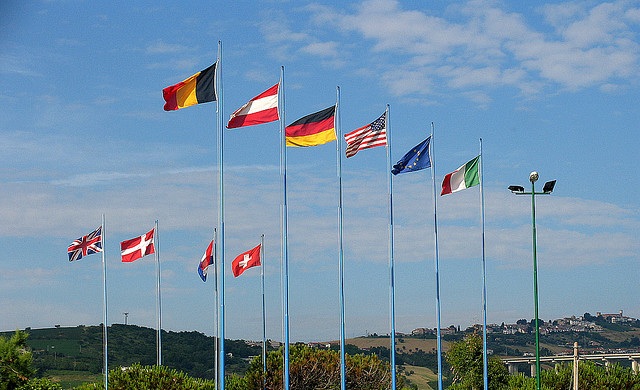“The world is changing” – one of the lines in one of the many Japanese anime that touches the state of global affairs and a few hours ago the world has witnessed the announcementof a landmark deal from four of the most powerful persons in the world – the President of the United States of the America, Prime Minister of the UK, and the Presidents of the EU’s European Commission and European Council

Over 70 years after the world was split into allies and foes, the nations that hold about a third of the global trade volume will start negotiations for a transatlantic trade investment partnership, or TTIP, between the European Union and the United States.
A “once-in-a-generation” prize of about £100 billion for the EU economy, £80 billion to the US’, and as much as £85 billion to the rest of the world, this truly may be the largest bilateral trade deal to be forged in the history of trade.
London welcomed the announcement, with the FTSE 100 closing 0.3% higher to 6,330.49 points and so did New York, with the Dow Jones Industrial Index gaining 0.7% to 15,179.85 points and Nasdaq earning 0.8% to 3,452.43 points, at the close of tradings on Monday. We are yet to see today how the second and the third largest economies of the world, China and Japan, respectively, would interpret the EU-US trade deal in terms of their effects to their economies.
Should the deal passed through the legislatures of both the US and the EU, there is no doubt the agreement they will have inked will become a benchmark framework for other countries wanting to integrate their economies in a global trade that has become most inter-dependent to date.
The BRICS nations of Brazil, Russia, India, China, and South Africa – countries that account for 25% of the global economy – have also made strides in their economic relationship by announcing the creation of a development bank that will aid in infrastructure development. The bank is intended to work the way the World Bank does – even seen by others to be its rival.
Elsewhere in the East, the Association of South East Asian Nations or ASEAN composed of Brunei, Cambodia, Indonesia, Laos, Malaysia, Myanmar, Philippines, Singapore, Thailand, and Vietnam are determined to go ahead with the economic integration of their economies by 2015.
We are slowly seeing nations and economies grouping together to form blocs to further interests and increase their leverage in the world stage that I wouldn’t be surprised if Japan and/or South Korea join either of these three blocks or if the middle eastern kingdoms and sheikdoms make plans to integrate their economic policies as well.
Meanwhile, our eyes are set on the stage just created by the US and the EU and how the world reacts to it.

 Hot Features
Hot Features













